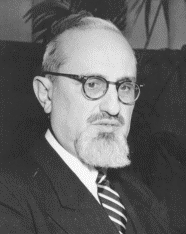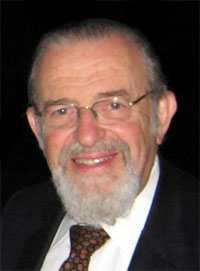Related Research Articles

Conservative Judaism is a Jewish religious movement, that regards the authority of Jewish law and tradition as emanating primarily from the assent of the people through the generations, more than from divine revelation. It therefore views Jewish law, or halakha, as both binding and subject to historical development. The conservative rabbinate employs modern historical-critical research, rather than only traditional methods and sources, and lends great weight to its constituency, when determining its stance on matters of practice. The movement considers its approach as the authentic and most appropriate continuation of halakhic discourse, maintaining both fealty to received forms and flexibility in their interpretation. It also eschews strict theological definitions, lacking a consensus in matters of faith and allowing great pluralism.
Halakha, also transliterated as halacha, halakhah, and halocho, is the collective body of Jewish religious laws that are derived from the written and Oral Torah. Halakha is based on biblical commandments (mitzvot), subsequent Talmudic and rabbinic laws, and the customs and traditions which were compiled in the many books such as the Shulchan Aruch. Halakha is often translated as "Jewish law", although a more literal translation of it might be "the way to behave" or "the way of walking". The word is derived from the root which means "to behave". Halakha not only guides religious practices and beliefs, it also guides numerous aspects of day-to-day life.

Louis Ginzberg was a Russian-born American rabbi and Talmudic scholar of Lithuanian-Jewish descent, contributing editor to numerous articles of The Jewish Encyclopedia (1906), and leading figure in the Conservative movement of Judaism during the early 20th century. He was born in Kaunas, Vilna Governorate and died in New York City.

Orthodox Judaism is the collective term for the traditionalist branches of contemporary Judaism. Theologically, it is chiefly defined by regarding the Torah, both Written and Oral, as revealed by God to Moses on Mount Sinai and faithfully transmitted ever since.

Reconstructionist Judaism is a Jewish movement that, based on the concepts developed by Rabbi Mordecai Kaplan (1881–1983) views Judaism as a progressively evolving civilization rather than a religion. The movement originated as a semi-organized stream within Conservative Judaism, developed between the late 1920s and the 1940s before seceding in 1955, and established a rabbinical college in 1967. Reconstructionist Judaism is recognized by many scholars as one of the four major streams of Judaism alongside Orthodox, Conservative, and Reform.

The role of women in Judaism is determined by the Hebrew Bible, the Oral Law, by custom, and by cultural factors. Although the Hebrew Bible and rabbinic literature mention various female role models, religious law treats women differently in various circumstances. According to a 2017 study by the Pew Research Center, women are slightly more likely to identify with Judaism. They account for 52% of the worldwide Jewish population.
A rabbi is a spiritual leader or religious teacher in Judaism. One becomes a rabbi by being ordained by another rabbi—known as semikha—following a course of study of Jewish history and texts such as the Talmud. The basic form of the rabbi developed in the Pharisaic and Talmudic eras, when learned teachers assembled to codify Judaism's written and oral laws. The title "rabbi" was first used in the first century CE. In more recent centuries, the duties of a rabbi became increasingly influenced by the duties of the Protestant Christian minister, hence the title "pulpit rabbis", and in 19th-century Germany and the United States rabbinic activities including sermons, pastoral counseling, and representing the community to the outside, all increased in importance.
The relationships between the various denominations of American Judaism are complex and include a range of trends from the conciliatory and welcoming to hostile and antagonistic.
Modern Orthodox Judaism is a movement within Orthodox Judaism that attempts to synthesize Jewish values and the observance of Jewish law with the modern world.

Joseph Ber Soloveitchik was a major American Orthodox rabbi, Talmudist, and modern Jewish philosopher. He was a scion of the Lithuanian Jewish Soloveitchik rabbinic dynasty.

Norman Lamm was an American Modern Orthodox rabbi, scholar, academic administrator, author, and Jewish community leader. He was the Chancellor of Yeshiva University until he announced his retirement on July 1, 2013.
The Committee on Jewish Law and Standards is the central authority on halakha within Conservative Judaism; it is one of the most active and widely known committees on the Conservative movement's Rabbinical Assembly. Within the movement it is known as the CJLS. The current chairman of the CJLS is Rabbi Pamela Barmash.
The Union for Traditional Judaism, founded in 1984, is a traditional, Halakhic Jewish outreach and communal service organization. It initially called itself "The Union for Traditional Conservative Judaism" but dropped "Conservative" from its title when it broke with the Conservative movement. In 1985 Rabbi Ronald D. Price was tapped to lead the organization as executive director and later as Executive Vice President. He served in that capacity for 26 years until his retirement in 2011. He was succeeded by Rabbi David Bauman and then Rabbi Gerald Sussman who is currently (2018) the executive director. In 1988 after attempting to affect change within Conservative Judaism, the UTJ membership voted to drop the word 'Conservative' from its title. Following a two-year period of negotiations, the Rabbinic Fellowship of the UTJ absorbed a modern Orthodox rabbinic organization, the Fellowship of Traditional Orthodox Rabbis. The merged rabbinic body is known today as MORASHAH. Some of the UTJ leaders at various times called themselves Conservative, Modern Orthodox or trans-denominational. The UTJ's Institute of Traditional Judaism (ITJ) granted semikhah to a number of rabbis, though as of 2018 there are no current semikhah students. The UTJ's Panel of Halakhic Inquiry has published three volumes of responsa titled "Tomeikh kaHalakhah." The UTJ produced the educational curriculum "Taking the MTV Challenge—Media and Torah Values" designed to provide high-school students with tools to respond to the electronic media. The UTJ is often viewed as representing a denomination or inhabiting an ideological space between Conservative and Orthodox Judaism.
Jewish feminism is a movement that seeks to make the religious, legal, and social status of Jewish women equal to that of Jewish men in Judaism. Feminist movements, with varying approaches and successes, have opened up within all major branches of the Jewish religion.

Gordon Tucker is a prominent rabbi, with a reputation as both a political and a theological liberal in Conservative Judaism. He is the former senior rabbi of Temple Israel Center in White Plains, New York. Since September 2020, he has served as the Vice Chancellor for Religious Life and Engagement at the Jewish Theological Seminary of America.
Yeshivat Chovevei Torah Rabbinical School (YCT) is an Open Orthodox yeshiva, founded in 1999 by Rabbi Avi Weiss.
Open Orthodox Judaism is a Jewish religious movement with increased emphasis on intellectual openness and a more expansive role for women. The term was coined in 1997 by Avi Weiss, who views halakha as permitting more flexibility than the traditional practices of Orthodox Judaism.
Conservative Judaism views halakha as normative and binding. The Conservative movement applies Jewish law to the full range of Jewish beliefs and practices, including thrice-daily prayer, Shabbat and holidays, marital relations and family purity, conversion, dietary laws (kashrut), and Jewish medical ethics. Institutionally, the Conservative movement rules on Jewish law both through centralized decisions, primarily by the Rabbinical Assembly and its Committee on Jewish Law and Standards, and through congregational rabbis at the local level. Conservative authorities produced voluminous Responsa literature.
Yeridat ha-dorot, meaning literally "the decline of the generations", or nitkatnu ha-dorot, meaning "the diminution of the generations", is a concept in classical Rabbinic Judaism and contemporary Orthodox Judaism expressing a belief in the intellectual inferiority of subsequent, and contemporary Torah scholarship and spirituality in comparison to that of the past. It is held to apply to the transmission of the "Revealed" aspects of Torah study, embodied in the legal and homiletic Talmud, and other mainstream rabbinic literature scholarship. Its reasoning derives from the weaker claim to authoritative traditional interpretation of scripture, in later stages of a lengthening historical chain of transmission from the original revelation of the Torah at Mount Sinai, and the codification of the Oral Torah in the Talmud. This idea provides the basis to the designated Rabbinic Eras from the Tannaim and Amoraim of the Talmud, to the subsequent Gaonim, Rishonim and Acharonim. Additionally, it has an extra metaphysical explanation in Kabbalah, regarding lower levels of souls in succeeding generations.
Sexual orientation has been a pivotal issue for Conservative Judaism since the 1980s. A major Jewish denomination in the U.S., Conservative Judaism has wrestled with homosexuality and bisexuality as a matter of Jewish law and institutional policy. As with other branches of Judaism debating the acceptability of sexual orientations other than heterosexuality, Conservative Jews faced both long-standing, rabbinic prohibitions on homosexual conduct as well as increasing demands for change in the movement's policies toward gays, bisexuals, and lesbians. Previously, the Conservative movement had changed its policies toward women, for example, by allowing the ordination of women as rabbis in 1983. Similarly, the Conservative leadership has been asked to stop discriminating against gay, bisexual, and lesbian people. This goal has been partially completed with the approval of the ordination of gay, bisexual, and lesbian rabbis in 2006 and of same-sex marriage ceremonies under Jewish law in 2012; However, the Conservative decision did not call same-sex marriages kiddushin, the traditional Jewish legal term for marriage, because that act of consecration is nonegalitarian and gender-specific. In the traditional kiddushin ceremony, a pair of blessings is recited and the bridegroom gives his bride a ring, proclaiming that he is marrying his bride “according to the laws of Moses and Israel.”.
References
- ↑ Safran cited a study of Conservative congregants conducted by the Jewish Theological Seminary’s Jack Wertheimer in 1996. Shafran also noted that only about half of Conservative bar and bat mitzvah receptions were kosher, by any standard.
- ↑ Shafran also stated that the decision was made against faculty wishes. He cited Rabbi Daniel Gordis, former dean of the University of Judaism’s Ziegler School of Rabbinic Studies for stating that “the Conservative Movement allows its laity to set its religious agenda.” "The Conservative Lie". Moment Magazine. February 2001. Archived from the original on 29 January 2009. Retrieved 13 January 2009.
- ↑ Avi Shafran, "The Conservative Lie", Moment , February 2001.
- ↑ Avi Shafran, "Conservative vote chance for halachic Jews to go Orthodox" Archived 2007-03-21 at the Wayback Machine , Jewish Telegraphic Agency, December 7, 2006.
- ↑ Avraham Weiss, ""Open Orthodoxy! A Modern Orthodox Rabbi's Creed"". Archived from the original on 2007-09-28. (766 KiB), Judaism, Fall 1997.
- 1 2 Jennifer Siegel, "Conservative Rabbi, in Swan Song, Warns Against Liberal Shift", The Jewish Daily Forward , March 24, 2006.
- ↑ Ismar Schorsch, Commencement Address Archived 2007-04-19 at the Wayback Machine , 112th Commencement Exercises of The Jewish Theological Seminary, May 18, 2006.
- 1 2 Joseph H. Prouser, "The Conservative Movement and Homosexuality: Settled Law in Unsettling Times" Archived 2007-04-29 at the Wayback Machine , United Synagogue Review, Fall 2006.
- 1 2 3 4 Debra Nussbaum Cohen, "Reform Leader Predicts Demise Of Conservatives" Archived 2005-03-30 at the Wayback Machine , The Jewish Week , March 5, 2004.
- 1 2 3 Joe Berkofsky, "Death of Conservative Judaism? Reform leader’s swipe sparks angry rebuttals", J. The Jewish News of Northern California , March 5, 2004.
- ↑ Laurie Goodstein, Conservative Jews Allow Gay Rabbis and Unions, The New York Times, 2006.
- ↑ Rachel Adler, Engendering Judaism: An Inclusive Theology and Ethics, Jewish Publication Society, 1998. p. 62.